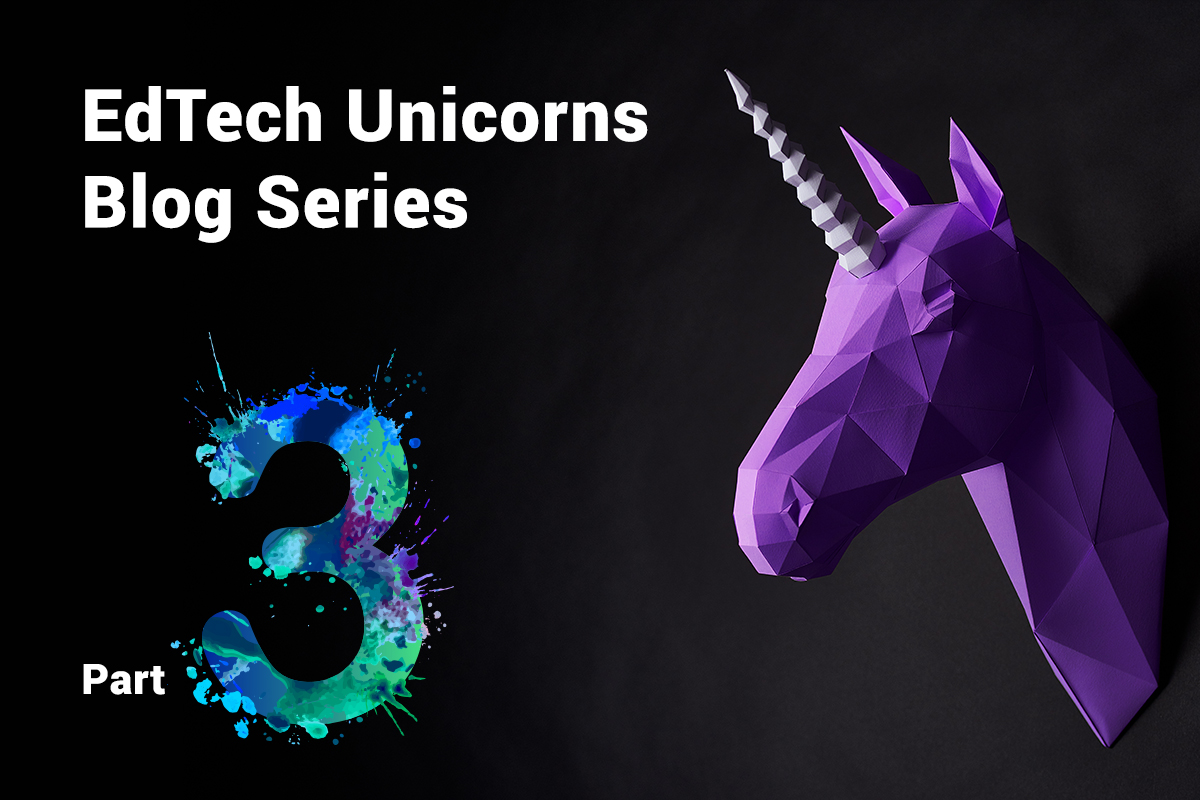I’d like to start this article on MOOCs and the MOOC Unicorns with this simple poem called “Oh Coursera!”
“Roses are red
Violets are Blue
Coursera went public
Can you go public too?”
Show me the MOOCs
MOOCs are offered in different shapes, sizes, and flavors, however, they all refer to courses that are hosted in a certain platform that makes them available for everyone. We will be focusing on Udemy, UnAcademy, Udacity, and ex-Unicorn Coursera. All of these companies offer MOOCs through their own learning platform. These courses offered are a mix of courses made by the unicorn itself, content creation partners such as universities, or simply individuals/companies that sell their courses through their platform. The granddad of these companies is Udemy, which was founded in 2009 but did not reach adulthood until after competitors like Coursera and Udacity started partnering with large universities and organizations to offer courses through their platforms. The MOOC unicorns, given their size and reputation, are also brands of approval that certify the quality and effectiveness of the courses offered. The seal of approval has become so recognized worldwide that some of the companies are offering Bachelor’s and Master’s Degrees entirely hosted within their platforms.
MOOCs are offered in different shapes, sizes, and flavors, however, they all refer to courses that are hosted in a certain platform that makes them available for everyone.
The MOOC unicorns offer courses to individuals interested in a specific course and also create and cater learning programs/paths to larger organizations such as government agencies, universities, and NGOs. Currently, Udemy reports around 40 million users around the world taking courses through its platform. The extent of the size of these companies has been recently shown by Coursera, who was kicked out of the edTech Unicorn list, as they launched their IPO and began to be traded in the NY stock exchange market only 10 years after its creation. This should not come as a surprise as Udemy and UnAcademy have valuations of $3.3B and $2B respectively.
The seal of approval has become so recognized worldwide that some of the companies are offering Bachelor’s and Master’s Degrees entirely hosted within their platforms.
Why are they needed – What is the pain point they are trying to solve?
Remember when knowledge was custodied by knights in small libraries where only priests could access them? MOOCs are the total opposite of learning and knowledge in the feudal system. Knowledge was used as a competitive advantage as it was preached by specific people that could not be everywhere in the world, or contained in elements that could not be reproduced and transported as fast as milliseconds. The need to open up knowledge and make it available to the public to satiate the thirst for knowledge has always been there, however, with the rise of the internet, and digital developments, someone in Bogotá, Colombia can be teaching coding to someone in Korea with no problems, delays or restrictions.
The MOOC unicorns offer a platform where they sell verified on-demand content that has been created by recognized universities, companies across the world in a platform that has been designed to assure effective online learning.
More than open access to courses, (one might say that Wikipedia also has open access to knowledge), why are these companies so recognized? The MOOC unicorns offer a platform where they sell verified on-demand content that has been created by recognized universities, companies across the world in a platform that has been designed to assure effective online learning. The latest living example of this is Microsoft choosing Udemy to launch its Microsoft Certification Training, for all people interested in working with Microsoft Azure, or preparing for the MTA, MCSA, MCSE, or MCSD exam.
Among these companies, it is important to highlight the following aspects
Courses and On-demand content:
- Recently, the competitive advantage has been given to those companies that manage to partner up with the most recognized on-demand content creation organization, be that Microsoft or Stanford University.
- Quality on-demand content attracts customers, recognized certifications help keep them engaged.
- Courses in order to be widely successful need to emmit certifications endorsed by recognized universities/companies.
Monetization Strategy
- Sell to everyone and sell everything. All the MOOC edtech unicorns offer courses about almost anything you want to learn and they sell to everyone. Courses are produced in different languages targeting individual consumers, companies, and even governments.
- Freemium model for the win. First, make me a customer with a free course, then get me addicted to quality content learning, and finally start charging me for it. Is it fair to me as a student that has just become more curious about knowledge? No. Does it make sense as a monetization strategy and has proven to be widely successful? Yes.
Interface/Platform:
- The simpler the better. A classic, easy, interface to use.
- The emergence of the use of AI to help learners build learning paths. There are many courses on these platforms, however, end-users can feel overwhelmed and end up not knowing what courses to choose. In order to keep users engaged, these companies are investing heavily in AI that recommends courses and learning paths according to the user’s preferences. Not only helping indecisive and overwhelmed students but also assuring that they keep consuming (buying) content.
What can we learn from those unicorns and their success?
Easy to use interface and software seems to be the seasoning to any recipe of success in the Edtech business. Quality on-demand content attracts users regardless of their market audience. Certifications approved by recognized institutions tackled one of the biggest challenges for digital education, assuring the quality of it. For many years, digital education was rejected or simply not valued as the misconception was that it did not result in the same level of learning as traditional in-person learning. Online degrees were not fully recognized and most of them were looked down upon. However, through certifications with recognized partners, digital education was suddenly the most attractive as it handed the user a diploma as valid as in-person one but with all the benefits of digital education.
Quality on-demand content attracts users regardless of their market audience. Certifications approved by recognized institutions tackled one of the biggest challenges for digital education, assuring the quality of it.
SDG number 4 states the need to ensure quality education that implies accessible education for everyone. These companies through the platform make knowledge available for the public, leveraging opportunities across the world, and erasing unfair competitive advantages based on geographical or time constraints. However, digital education is still not as valued as it should be, as these companies show that their success was only achieved through external certifications validating their courses. Making the diploma-driven approach of our education mentality even more explicit, instead of the knowledge approach, but don’t worry, we’re slowly getting there.
Just like Coursera in the list of EdTech unicorns, I’m leaving. However, I’ll see you next time where we talk about Language Learning EdTech Unicorns. Sayonara!



